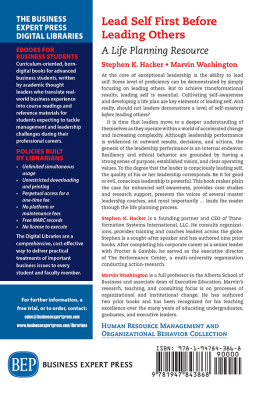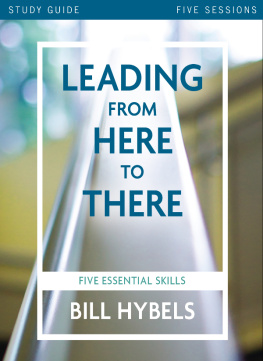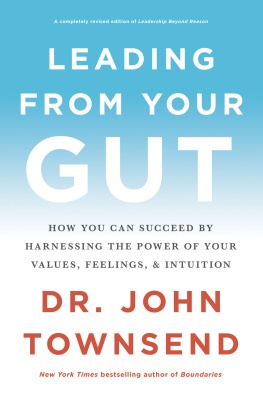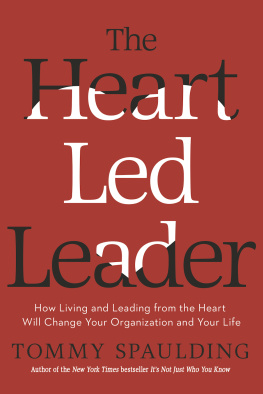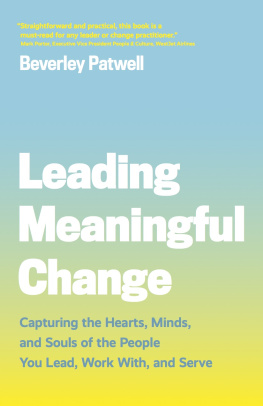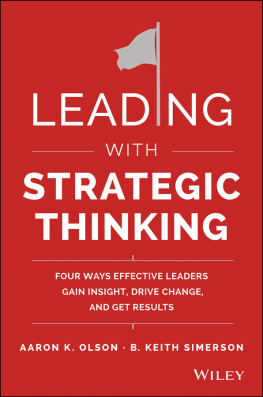I have had more trouble with myself than any other man. I have never met a man who has given me as much trouble as myself.
D.L. Moody
What does leading self mean? Leading self encompasses being awake to life and moving forward in a purposeful manner. A leader of self has eyes wide open to countless opportunities available to live a life of meaning, as opposed to wandering through life hoping for the best. And as part of living a purposeful life, the leader of self is engaged in fulfilling visions and creating outcomes within the construct of conscious values.
However, many leaders of others fail to formulate a life plan for leading themselves. A life plan is a written document outlining their purpose, vision, values, and operating principles. As leaders of organizations, they may adhere well to an organizational mission statement, vision, and values. As a leader of others, they probably can articulate these important organizational elements even without a wallet card. But what about self? Should not the leader of others first become an intentional leader of self?
The leader of self uncovers his or her reason for being (life purpose), moves toward a vibrant vision, and operates within chosen principles flowing from well-defined values. With these life plan components, the leader of self remains awake to life despite pressures to fall asleep in a hectic world. And when obstacles are encountered, and his or her vision does not immediately materialize, learning is opted versus blame and perseverance selected versus hopelessness. The alternative to not having a life plan is a life of wandering where the leader simply responds to the conditions and stimuli of the world, avoiding pain and seeking delight. Trusting that working hard and being smart will all add up to something one day is a fools dream, far from creating a life of meaning or a distinct vision.
Like an organizational plan that has an overall mission, leading self begins with delving into the big question, Why am I here? It is an individual purpose statement. Mark Twain was attributed to have said, The two most important days in your life are the day you were born and the day you find out why.
Moving from Intelligence Quotient to Spiritual Quotient
Over the past 100 years, there has been a dramatic shift in how leadership is viewed. One only must look at the titles of previous leadership books to discover this shift. The website CEO.com lists 24 leadership books to read before you die. There are titles in this list of books such as How to Have Confidence and Power in Dealing with People, Good to Great: Why Some Companies Make the Leap and Others Dont, The Emperors Handbook, Primal Leadership: Learning to Lead with Emotional Intelligence, The Seven Habits of Highly Effective People, The Art of War, and Liars Poker . Other famous leadership books include Jesus, CEO , and Leading with the Heart: Coach Ks Successful Strategy for Basketball, Business, and Life (the head coach of Duke mens basketball team). Wow, this is a very diverse set of titles! It would be difficult to combine insights from the Art of War and Jesus, CEO .
While there has been a broadening of leadership books and leadership insights over the past 100 years, leadership development has expanded to first include deeper relational awareness and, more recently, a self-awareness combined with the ability to thrive in times of transformational change.
The first real leadership training considered leadership as a set of skills. Thus, leaders were thought of as people with high intelligence quotients (IQs). IQ is a score derived from standardized tests created to assess human intelligence. Although IQ as a term originated from psychologist William Stern early in the 20th century, it has become an expression to indicate strong rational, logical, learned, and cogent thinking. In the case of organizational leaders, it refers to their ability to understand organizational systems and comprehend their complexities. Developing leaders was largely a process of promoting smarter, more data-driven individuals.
Over time, a shift occurred. Part of this shift was driven by an increasingly diverse workforce and an acknowledgment that there was one best way to treat everybody. Thus, what was needed was emotional intelligence or EQ. When Daniel Goleman coined emotional intelligence in his 1995 book titled Emotional Intelligence: Why It Can Matter More than IQ , this course work was further legitimized. Goleman capitalized on the similarity to human cognitive intelligence, IQ, to make his case. In addition to IQ skills, leaders now need empathy, appreciation, and emotional awareness skills. Over time, the term EQ has come to be used to describe a broad array of skills and characteristics best used in relational leadership.
This book draws upon IQ and EQ, but connects to different foundations for leadership, spiritual intelligence. While having individuals develop their leadership skills in terms of IQ (financial, planning, meeting skills) and EQ (empathy, emotional awareness, appreciate skills), what has become apparent is that some leaders were missing skills that fostered passion, creativity, resilience, and drive. Given the increased pressure for results born from a faster changing world immersed in complexity, resilient leaders were succeeding where others failed. The ability to bounce back from setbacks was an enormous advantage. Growing in internal strength was needed as organizations were in almost constant transformational mode. Beyond intellect and relationship acumen, self-knowledge apart from the organization seemed to nurture resiliency, tenacity, and perseverance. Developing a personal mission, vision, and values began to be a part of the leadership development curriculum. And this work of self-reflection and inquiry to become more conscious and self-directed is fundamental to spiritual intelligence, or SQ. SQ was the missing ingredient to leadership development.
The Emergence of SQ
Danah Zohar introduced the term spiritual intelligence, or SQ, in 1997 in her book ReWiring the Corporate Brain. SQ was a cleaver approach to have the aspect of spiritual development considered alongside IQ and EQ. Others have joined the SQ inquiry and its measurement. Spiritual intelligence speaks not to a religious doctrine (the practice of a spiritual belief) but to spiritual aptitude. The concept of spiritual development includes a keen self-awareness, living into purpose and vision, alignment of a vocation with purpose, viewing life challenges and adversity within the context of spiritual growth, and alertness to larger patterns and connections.
SQ aptitude serves to recast many of the simple tools and approaches from past leadership curriculums. Aligning personal goals with organizational goals is recast from an indoctrination process to a discovery process. Seeing alignment as needing self-awareness in addition to the organizational assertions of itself changes the approach. Bruce Tuckmans formingstormingnormingperforming model of team development needed to evolve. Pecks emptying stage is dependent on a high level of self-awareness of all participants as a condition for success to reveal individual mind-sets and motivations. In short, SQ is not only the addition of a third ingredient in the leadership development mix, but it also alters both IQ and EQ approaches.
SQ focuses on the grounding of a leader through self-awareness of personal mission, vision, and values apart from the organization. Through strength of living a life of meaning, the leader is better able to determine if true alignment with an organizations mission, vision, and values exists. And by leading others to undergo a similar self-inquiry, the organization benefits from increased employee engagement and creative spirit.
Leadership programs can still be found without a word on SQ, but only an emphasis on IQ and/or EQ. They tend to take the form of a speakers bureau, where subject experts, authors, existing leaders, and consultants present their ideas. These presentations can be considered as ornaments, attractive and holding value in and of themselves. But they are not necessarily tied together in a comprehensive architectureno tree onto which the ornaments could be placed. So, as interesting as these individual ornaments are, they tend to be quickly forgotten. Without a mental framework of individual purpose and vision, absorption of abstract concepts or lessons gained through others experiences is weak and minimal. Leaders with a healthy dose of SQ develop a way of thinking and an individual configuration to organize the different ideas, to absorb the ideas. They assimilate the concepts into who they are and where they are going.
Next page
